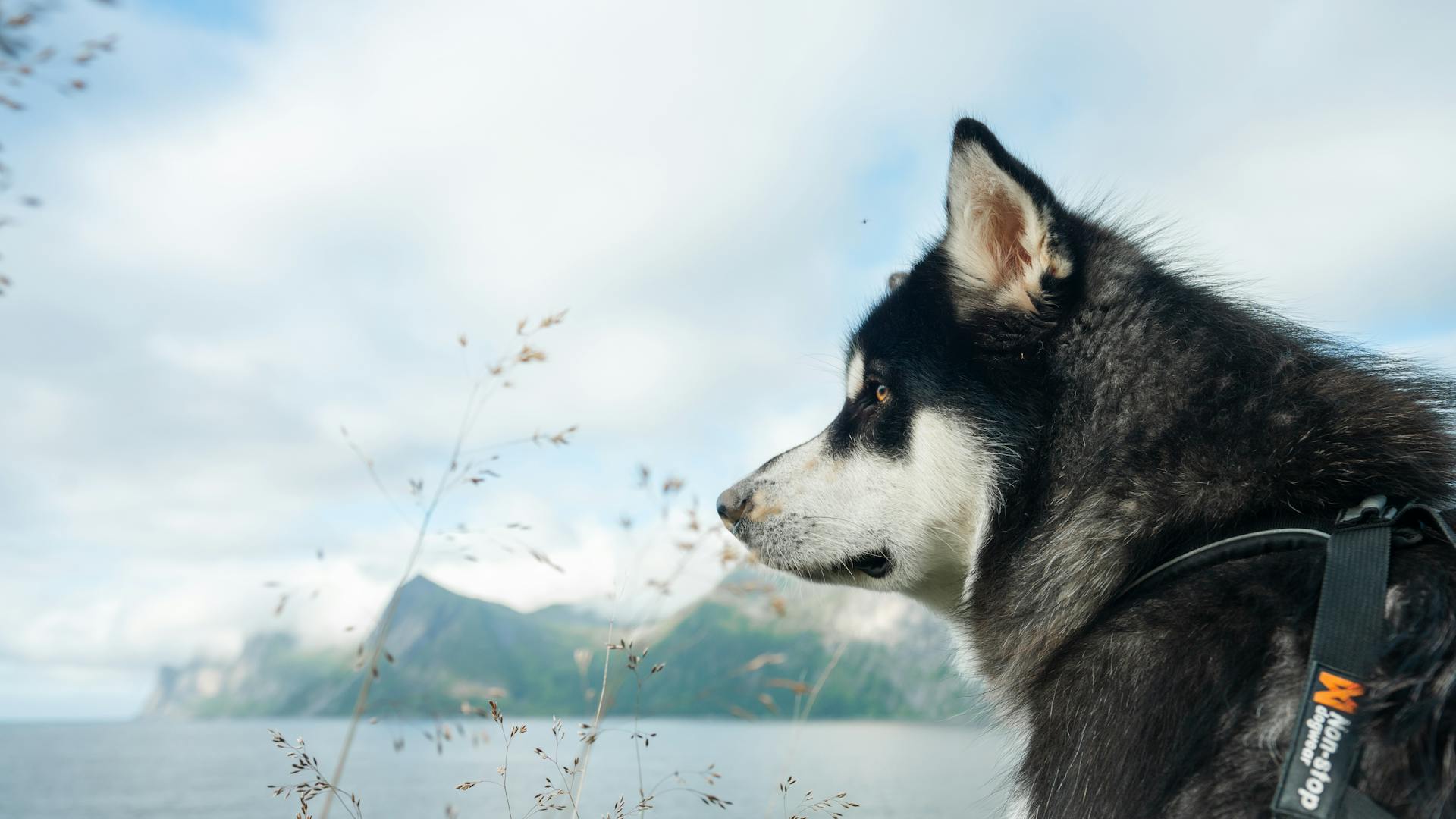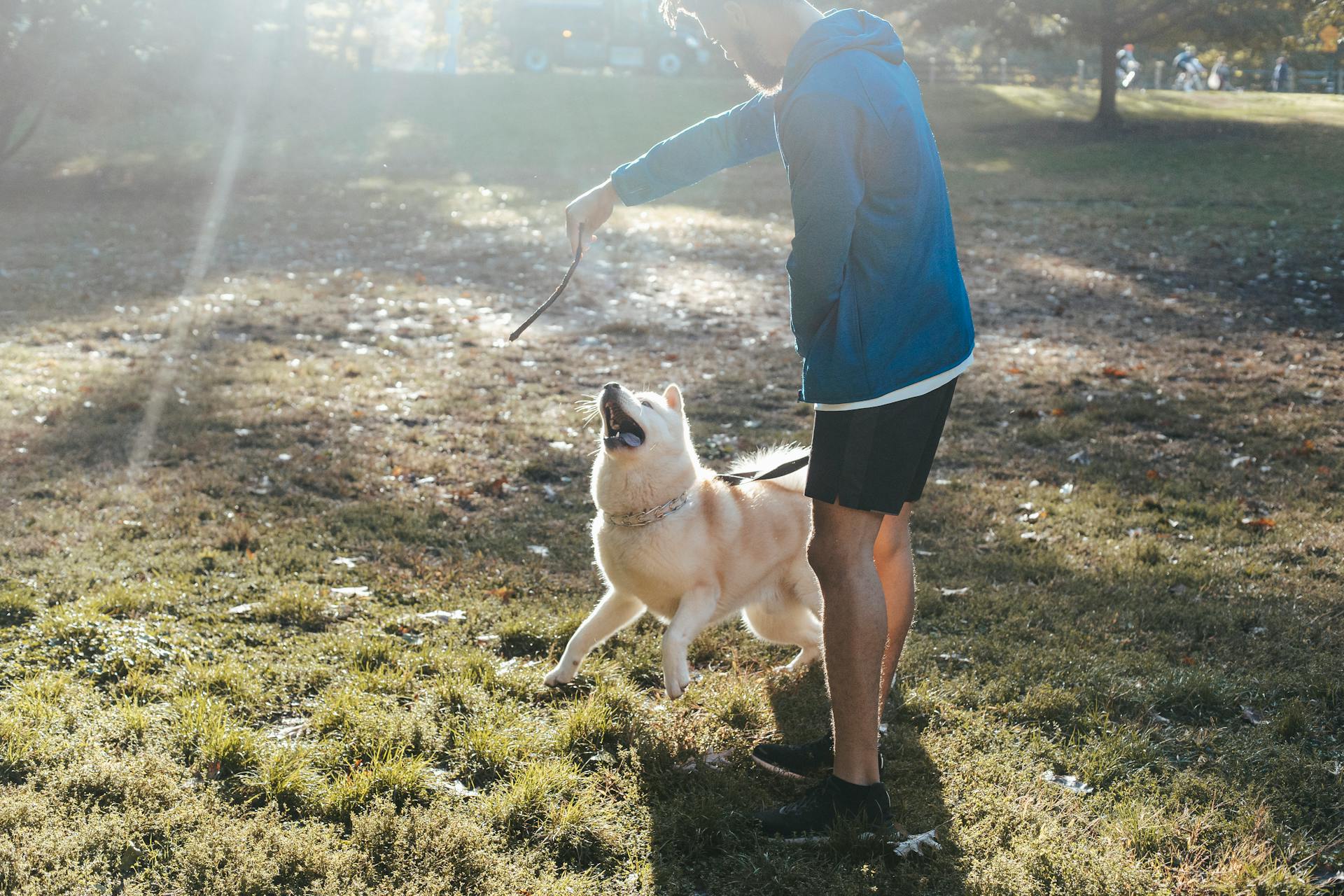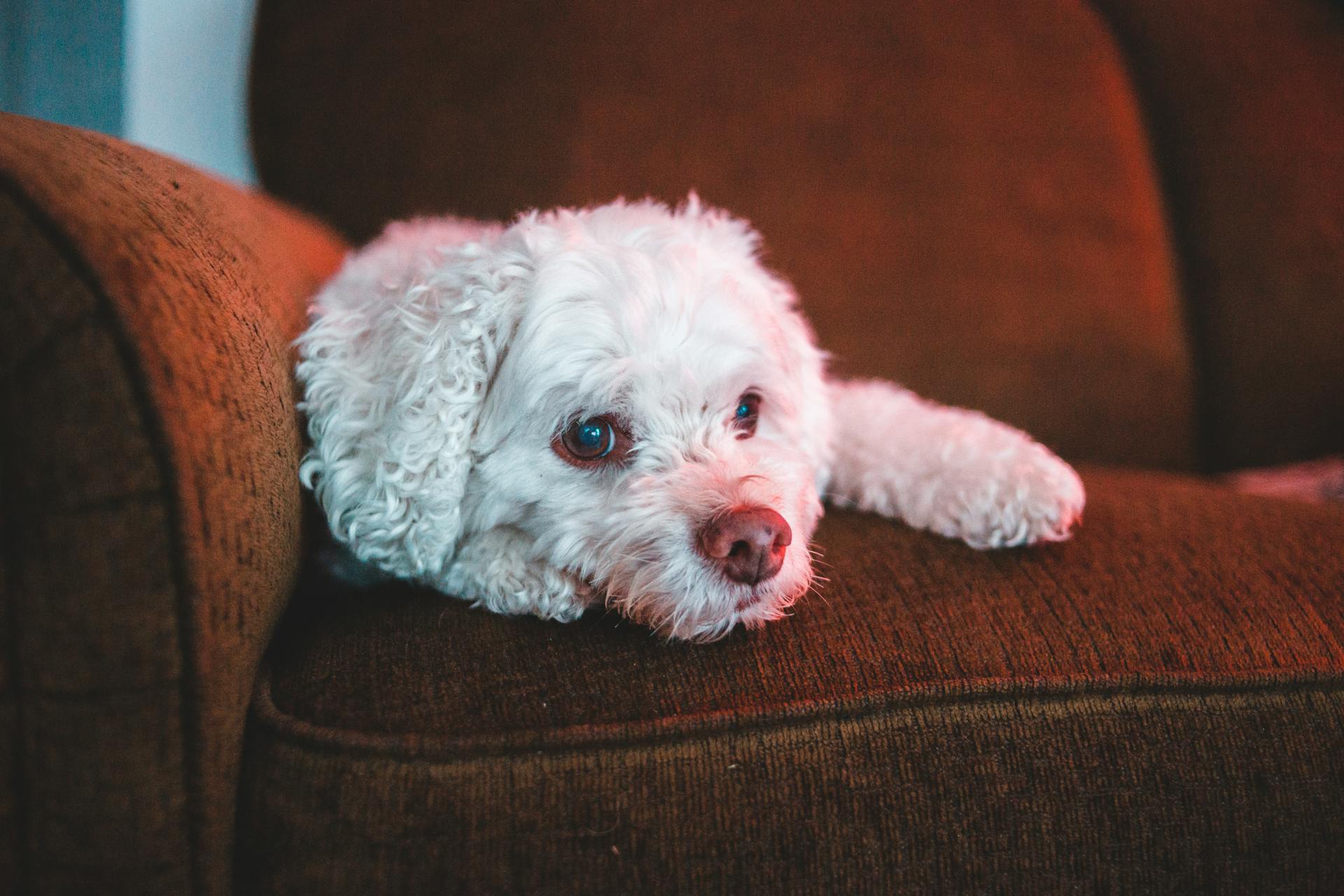
Siberian Huskies are a breed known for their intelligence and strong will, but that doesn't mean they're impossible to train.
They thrive on structure and clear communication, which is why establishing a consistent routine and setting clear boundaries is crucial.
With patience and positive reinforcement, Huskies can learn to obey commands and behave well in public.
However, their independent nature can make them resistant to training if they sense they're being forced or coerced into doing something.
Their strong prey drive and high energy levels also require regular exercise and mental stimulation to keep them focused and engaged.
Siberian Husky Training Basics
Siberian Huskies are a challenging breed that requires a strong pack mentality from their owners. They are prey-driven, complex, competitive, stubborn, strong, and clever, making them a handful to train.
To establish a successful training relationship with your Siberian Husky, you must take on the leadership role immediately. This means providing a safe, structured, comfortable environment that includes exercise, good nutrition, and affection.
Your Siberian Husky will try to take on the leadership role if you don't establish boundaries, so be prepared to re-establish them. Dogs are generous and will understand your leadership if you provide a consistent and loving environment.
Puppy Breeds
Siberian Husky Training Basics wouldn't be complete without discussing the various puppy breeds that make up this beautiful and energetic family.
Siberian Huskies are a medium-sized breed, weighing between 35-60 pounds and standing between 19-23 inches tall.
Their thick double coats require regular grooming to prevent matting and tangling.
The Siberian Husky is a loyal and friendly breed, making them an excellent choice for families with children.
Their high energy levels mean they need plenty of exercise and mental stimulation to prevent boredom and destructive behavior.
Huskies are highly intelligent and trainable, but they can be stubborn at times, requiring patient and consistent training.
Their strong prey drive means they may not be the best fit for homes with small pets, such as rabbits or guinea pigs.
Siberian Huskies are highly social dogs that thrive on interaction and attention from their human family.
Their natural instinct is to howl, which can be a challenge for some owners, but with proper training and exercise, it can be managed.
Their short attention span means training sessions should be kept short and fun to keep them engaged.
Huskies are generally healthy dogs, but like all breeds, they can be prone to certain health issues, such as hip dysplasia and eye problems.
Their lifespan is typically between 12-15 years, making them a long-term companion for many families.
Potty Training
Potty training a Siberian Husky requires some planning and attention to your dog's schedule. Use a crate for short periods of time to help with this process.
To be a good time manager, you need to know when your dog needs to potty. Keep your dog on leash in the home so you can prevent them from wandering around and making mistakes before they're house trained.
Having a regular schedule for your pup is key. This includes a food, water, walk, and play schedule, so you know when your husky needs to potty. They'll need to go right after waking from a nap, about 30-60 minutes after eating and drinking, and right after an exuberant play session.
Here's a rough guide to help you keep track of your husky's potty needs:
Dog Training
Crate training is an essential part of Siberian Husky training. It helps prevent excessive vocalization and separation issues, and can be especially useful for safe travel and veterinary-prescribed crate rest.
Choose a crate that's the right size for your dog, allowing them to comfortably stand up, turn around, and lie down. Introduce the crate when your pup is most tired and place it right next to you.
Place your pup in the crate with a food-stuffed chew toy to keep them occupied, and take them out after a brief period to their potty spot. Reward them for going in the right spot and then have a play/training session.
Gradually increase the length of time your pup spends in the crate, always ending on a positive note. You can also feed your pup their meals in the crate to create a positive association.
Feeding meals in the crate can be a great way to help your pup feel comfortable and secure. Just be sure to follow the guidelines for crate use, avoiding confinement for hours on end.
Related reading: Crate Training Potty Training
A crate can be a valuable tool for managing your pup's behavior and creating a sense of calm. Just remember to use it correctly and with consistency.
Here are some key guidelines for crate training:
- Choose an appropriately sized crate.
- Introduce the crate when your pup is most tired.
- Place your pup in the crate with a food-stuffed chew toy.
- Gradually increase the length of time your pup spends in the crate.
Real leadership is not about being violent or harsh, but about providing a safe, structured environment for your dog. This includes exercise, good nutrition, and affection.
By establishing clear boundaries and being consistent, you can help your dog feel more secure and reduce stress. This is especially important for Siberian Huskies, who thrive on structure and hierarchy.
Understanding Husky Behavior
Siberian huskies are a challenging breed to train because they retain a strong pack mentality, which can make them seem stubborn and competitive.
Their prey-driven nature means they need plenty of exercise to keep them happy and healthy.
A Siberian husky's pack mentality requires a strong leader to provide structure and boundaries.
Dogs are naturally inclined to follow a leader, and this is especially true for huskies who need a clear hierarchy in their household.
In the wild, dominance establishes conflict, but in a civilized household, this approach doesn't work and can lead to behavioral problems.
Real leadership has nothing to do with being harsh or violent, but rather about providing a safe and comfortable environment for your husky.
If your Siberian husky is taking on a leadership role, it's up to you to re-establish the boundary lines and provide clear guidance.
Dogs are generally generous and will understand and respect a strong leader, even if they initially resist the change.
Hard to Train?
Huskies are hard to train due to their independence and lack of interest in training. They were bred to be very independent and not easily trained.
Many owners struggle to teach basic obedience skills like not pulling on leash or not jumping up. This can be frustrating for dog owners who want a well-behaved pet.
In fact, some dog trainers have seen many owners frustrated by their Husky's behavior. They're just not built for obedience training.
If you're looking for a dog that can learn a ton of tricks and do agility, a Husky might not be the best choice.
Training Methods and Tools
Siberian Huskies can be trained with the right approach, and one great resource is expert dog trainer Andrea Arden and her team.
Andrea Arden's team can educate your dog with their expertise.
Positive reinforcement is a key training method that can be effective with Siberian Huskies.
This method focuses on rewarding good behavior rather than punishing bad behavior.
With consistent training and positive reinforcement, Siberian Huskies can learn to respond to commands and behave well.
Some dog owners find it helpful to use clicker training as a tool to reinforce good behavior.
Check this out: Are Siberian Huskies Good with Kids
Husky Development and Intelligence
Huskies are not dumb dogs, but their intelligence is often misunderstood. They require a lot of repetition to learn and retain new skills, which can be frustrating for owners.
Their intelligence can be defined in different ways, and by one definition, Huskies are great problem solvers and do well with food puzzles and brain games. They just need to be motivated enough to make an effort.
As Huskies mature, typically around 1.5-2 years of age, they reach full adulthood and greatly benefit from consistent guidance and training. This is an ongoing process that requires continued effort and reward-based training.
Dog Intelligence
Husky owners often get frustrated with their dog's intelligence, but what does it really mean to be "intelligent" in dogs? Huskies are not dumb dogs.
Most owners define "intelligence" as the dog needing few repetitions to learn a new behavior, but Huskies require a lot of repetition to learn and retain a new skill. They often need to be coaxed into learning.
Huskies are actually great problem solvers and do very well with food puzzles and brain games. They're smart in their own way, but motivation is key.
To learn and retain new skills, Huskies need to be motivated enough to make an effort, and motivation to work often is what they lack. This can make training a challenge.
Huskies may not be the easiest dogs to train, but with patience and persistence, they can learn and grow. They just need to be approached in a way that suits their unique learning style.
A different take: Alaskan Husky Dogs
Adulthood
As your Siberian Husky reaches adulthood around 1.5-2 years of age, they'll have greatly benefitted from your guidance during their puppyhood and adolescence.
Their behavior will continue to change, so it's essential to maintain a consistent approach to training and rewarding good behavior.
Continuing to reward daily good behavior with praise, toys, food, and life rewards will keep your adult Husky engaged and motivated.
At this stage, you've mastered the art of motivating your Husky to play the training game, and you can engage them in ongoing activities that serve as an outlet for their mental and physical energy.
Ongoing activities like these will further bond you with your Husky and maintain a cooperative relationship.
For your interest: Do Siberian Huskies like Cats
Sources
- https://www.thepuppyacademy.com/blog/2021/12/27/a-guide-to-puppy-breeds-siberian-husky
- https://andreaarden.com/dog-training/how-to-train-a-siberian-husky/
- https://life-with-a-husky.com/2018/01/29/the-dog-training-debate/
- https://spiritdogtraining.com/are-huskies-smart/
- https://be.chewy.com/training-secrets-for-siberian-huskies/
Featured Images: pexels.com


